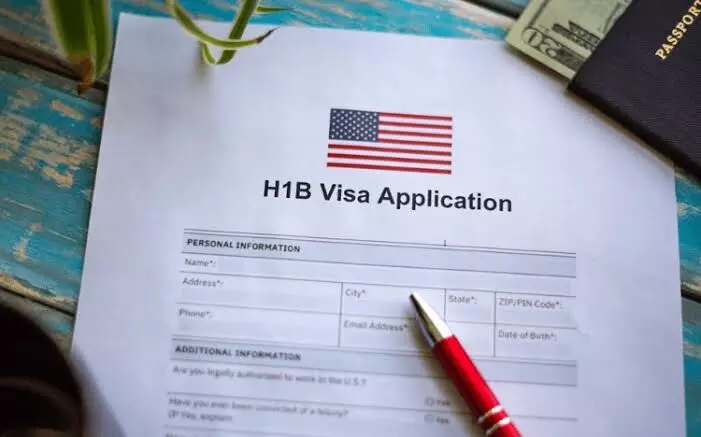US plans to replace H-1B Visa lottery with wage-based selection to attract high-skilled workers
H-1B Visas, US proposes wage-linked system to replace the existing lottery selection
By Sri Lakshmi Muttevi
H-1B Visas: US proposes wage-linked system to replace lottery selection
United States: In a significant move, the Trump administration is contemplating a major reform of the H-1B visa system, proposing to replace the current random lottery with a more structured, wage-linked selection process.
How does the H-1B visa program work?
The H-1B visa program is vital for American technology companies that rely heavily on skilled foreign workers, particularly from India. At present, the United States Citizenship and Immigration Services (USCIS) conducts a random lottery to select applicants, treating all entries equally regardless of salary or experience level.
However, in a filing submitted on July 17 to the Office of Information and Regulatory Affairs, the US Department of Homeland Security (DHS) outlined a proposal to introduce a ‘weighted selection process’ for the capped category of H-1B visas.
How will the new visa procedure work?
Under this plan, selection priority would be given based on the wage level offered to the foreign worker being sponsored.
According to the proposal, H-1B visas would first be allocated to beneficiaries in Level 4—the highest wage tier, typically representing the most experienced professionals—followed by Levels 3, 2, and 1, until the annual cap of 85,000 visas is reached.
The rule was frozen by the Biden administration
This rule, originally introduced during the Trump presidency, was later frozen by the Biden administration and ultimately vacated by a court order.
The DHS has not yet clarified the exact structure of the new weighted system or the timeline for its implementation, should it be approved.
H-1B visas in numbers
Currently, the United States issues 85,000 new H-1B visas annually, which includes 20,000 reserved for applicants holding a U.S. master’s degree or higher. Indian nationals dominate the H-1B program, accounting for approximately 77 per cent of the 320,000 approved applications.
Though classified as a temporary work visa, the H-1B allows foreign professionals to live and work in the US for up to six years. During this period, many pursue permanent residency through employment-based green card programs, often with the support of their employers.
Musk’s reaction
Reacting to the proposed changes, tech entrepreneur Elon Musk offered a one-word response on social media platform X: “Great.”